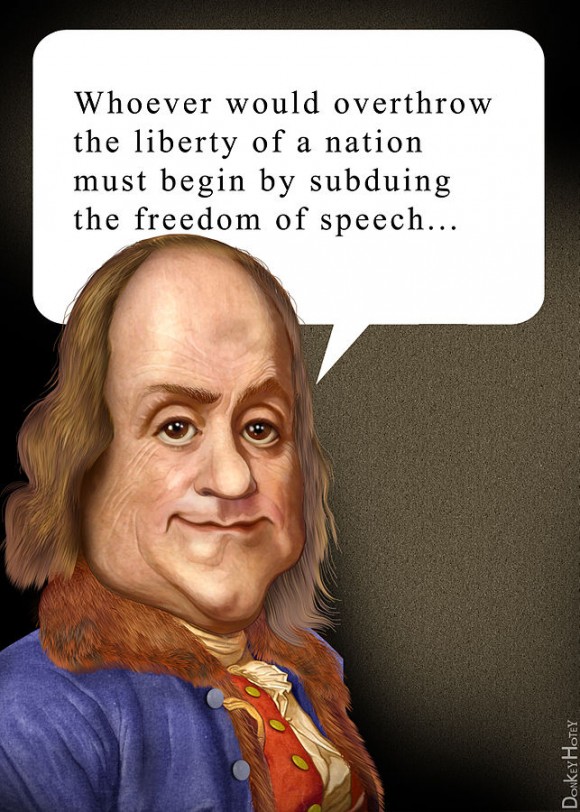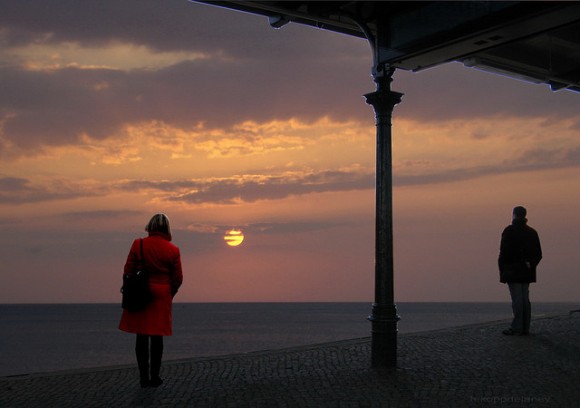 aNewDomain commentary — The song “I Hate,” by British singer-songwriter Passenger, always makes me smile.
aNewDomain commentary — The song “I Hate,” by British singer-songwriter Passenger, always makes me smile.
But not for the reasons you think.
Well crafted music, like this Passenger song, is a powerful force for expressing truth, and that’s what “I Hate” does for me. Here’s the video of “I Hate” by Passenger (aka Michael David Rosenberg) below.
[youtube http://www.youtube.com/watch?v=lrCoiu5Fd4I?rel=0&controls=0&showinfo=0]
In his song, Passenger rattles off a list of the sort of people he hates. Yet the music is a far cry from what anyone would associate with angry music. There’s no rage or anger expressed through Passenger’s voice as he sings. The tune is melodic and his acoustic playing is subdued in the live version I embedded above.
 Still, the message is powerful. Knowing what you disagree with, or dislike, or even hate, is the essence of freedom.
Still, the message is powerful. Knowing what you disagree with, or dislike, or even hate, is the essence of freedom.
Listen to the song, and the hate doesn’t ring out. But honesty and integrity do.
What Passenger has done here is something completely at odds with today’s pop music, popular media and run of the mill marketing. The cultural message these days is you’re supposed to lie to maintain status quo, or lie to be polite so that you can participate in so-called polite society. You’re expected to swallow your pride and your tongue if ever you feel righteous anger.
It’s ridiculous.
If you love, you hate. Anyone who claims they hate nothing loves nothing and no one.
To put it another way, if you truly and passionately love, then you hate that which threatens your love. It’s proverbially true that there’s a thin line between love and hate, and one is a facet of the other. That’s why we’ve all experienced at least one love/hate relationship.
I’m disturbed whenever I hear people denouncing the U.S. for not making “hate speech” illegal. To do that, you’d have to tightly define what is hate speech and what isn’t. And who gets to decide what hate speech is?
What happens when the powers that be decide that your “love” speech or “passion” speech, or just plain “truth” speech, is “hate” speech and you’re to be silenced by the law or the court of public opinion. What then?
“Whoever would overthrow the liberty of a nation,” Benjamin Franklin once said, “must begin by subduing the freedom of speech.”
Listen. Whatever you call hate speech is just that. Speech. Speech that is protected — it’s First Amendment freedom of speech.
 What happens when the powers that be decide you’re to be silenced or be treated as a criminal and locked away?
What happens when the powers that be decide you’re to be silenced or be treated as a criminal and locked away?
I’m much more accepting of hearing or reading someone ranting about hating someone I love than I would be about seeing them taking action to harm or destroy them — or, worse yet, demanding that the government do it for them, so they can keep their hands clean while having the full violent capacity of the government fulfill their wishes.
To live in the freedom that we need to have for the greatest measure of health and joy, we have and must retain the right to freely express our opinions, views, and yes, even hatred.
And anyway, if you don’t give people a voice in the forums, they will plot in the hallways.
In “Red Tide,” legendary Rush drummer and lyricist Neil Peart said it best: “Silent rebellion leads to open war.”
Silencing or curbing so-called “hate speech” sooner or later leads to pressurized, enervated people violently acting out their “hatred” — and doing so with an extra seasoning of rage because their speech was suppressed.
In the spirit of Passenger’s “I Hate” song, where he includes in his hate list people who cough when he goes out for a cigarette break, as well as racism and X Factor, why not write one of your own? Here’s my short hate list:
I hate people who seek to legislate other people’s likes and dislikes. I hate people who espouse comic book-like attitudes on what is right and wrong, good and evil, justice and injustice (though they do have the right to say it). I hate the intolerant who demands tolerance from everyone else, closed off knee-jerk reactionaries who claim to be more rational and moral than anyone else and fanatics about religion and government, too. I hate people who feel entitled to get a living just because they have a heartbeat.
I could go on, but you get the gist, right?
My hate, of course, is not for the people who have these actions and attitudes, but for the actions and attitudes themselves. And I hate because they’re the antagonistic antithesis of what comes out of those I love.

Hatred isn’t the problem. Ignorance and lack of awareness is the problem.
If you love, you hate. If hating is a problem, then so is loving, because people can love blindly, irrationally and superficially.
As with anger, hatred can be felt and expressed for the wrong reasons, felt against the wrong person and expressed in the wrong way, and at the wrong time and in the wrong place.
Perhaps, as with getting angry, feeling hatred is a little too easy for human beings.
Then again, falling in love seems to be a little too easy, too. And in my experience, I’ve had more harm done to me by my loving than by my hating.
There are times — many times — when writers and other artists are compelled to create out of love … and hatred. Would you make laws against their passionately creative expressions? Is that what a free-thinking society does?
Instead of demanding that some iron-fisted nanny come up with yet more hand-and-tongue-tying laws, join Passenger and me, and come hating along with us.
Brew your own songs of love and hatred instead of taking imprudent actions. Take a lesson from the music and don’t rent out your mind to those who incentivize people to begin plotting in the hallways and growing poison trees. Don’t hate the hater. Sing along instead.
For aNewDomain, I’m Brant David.
Cover image/image one of an angry protester: MPRNews.org, All Rights Reserved; image two: “Benjamin Franklin freedom of speech quote” by DonkeyHotey – Listen to Ben – Stop SOPA and PIPA Uploaded by Cirt. Licensed under CC BY 2.0 via Wikimedia Commons; image three: via Flickr, All Rights Reserved.












